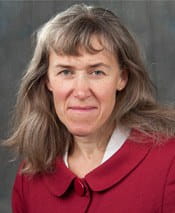New mentoring guide published to help surgeons fulfil their potential
01 Dec 2015
Mrs Scarlett McNally

Many surgeons have been mentoring informally for years. I know trainees who would have dropped out were it not for a dedicated senior helping them put life in perspective. Clearly there are excellent courses available. From an educationalist’s view-point, the ideal would be to have a personalised course, be appraised performing this additional role and respond to feedback and reflection. And the evaluation of such schemes is excellent. But surgeons are busy. This new College guide is a pragmatic “let’s say what it is, what it isn’t, list the risks, agree the boundaries and get started”. There is even an easy checklist in the appendix to get going.…
Mentoring is about exploring how an individual wants to develop or change, often letting them verbalise their thoughts and come up with their own solutions with guidance. Mentoring relationships can be short or long. The guide lists helpful behaviours to practice. For example, it is quite hard to let someone talk at length without interrupting and giving instruction. Active listening and exploring an idea together with the end goal in sight are helpful. Often the mentee knows what they should do. It is quite difficult to change behaviour and being a mentee with a mentor’s support makes that easier.
Mentoring is not giving advice, patronage or counselling. Rather, mentoring is about supporting the mentee to review their own situation and arrive at their own conclusions about actions to take. Similarly, mentorship is different from supervision and preceptorship which are more about instructing or directing. (The term preceptorship was coined by the nursing profession, to involve guiding a newly qualified or newly appointed colleague through the uncertainties of early clinical practice while they ‘find their feet’ and is important for newly appointed consultants.)
Mentoring should be for everyone. It is explicitly encouraged in Good Surgical Practice and the SAS Charter (for all those in posts not requiring them to be on the Specialist Training register or with a national training number), also by the GMC1, and the Women in Medicine Report. The number of surgical posts in Foundation is plummeting, dissatisfaction exists amongst junior doctors and surgery is becoming less popular as a career choice. A mentoring arrangement with a real surgeon (consultant, NTN, SAS) developing from medical school, through the fallow Foundation years and the hardcore training years could retain the spark for those who want to be surgeons in the future.
There are benefits to the mentee, to the mentor (a warm glow, probably, since there are such pressures on SPA time) and to the organisation. It may be possible to horizon-scan and develop skills, attributes or experience to help them secure a future opportunity (e.g. medical director).
Please read this very short guide – hopefully it will help change someone else’s life and help them to fulfil their potential: Mentoring: A Guide To Good Practice
Mrs Scarlett McNally is a consultant orthopaedic surgeon and council member at the RCS.
